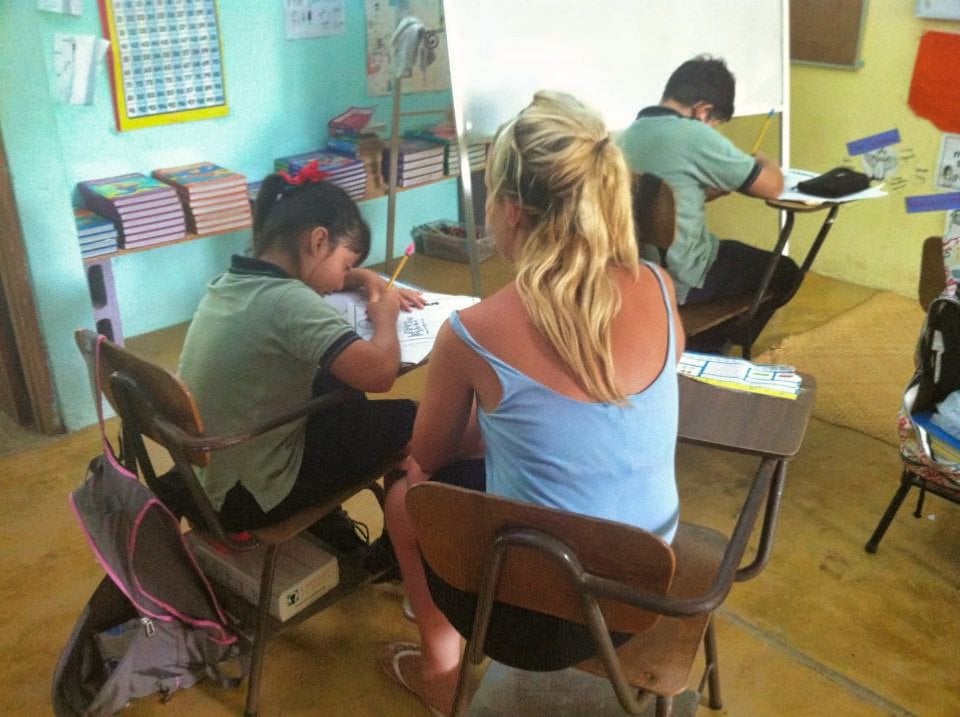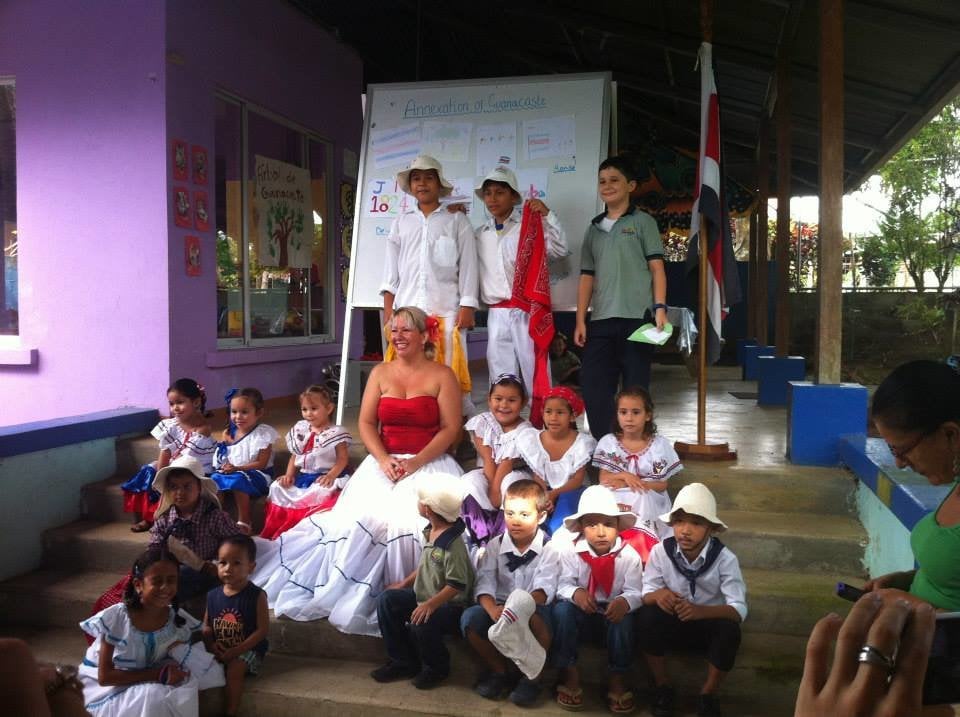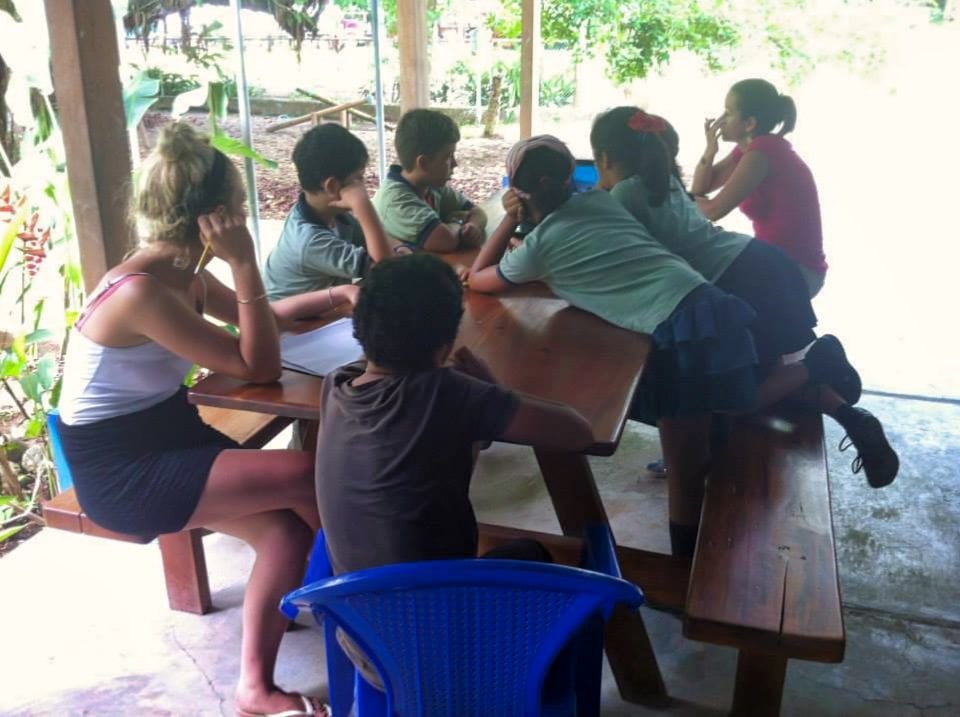8 Insider Tips for Teaching English in Costa Rica
A comprehensive guide to everything you need to know about teaching English in Costa Rica.

Costa Rica’s magnificent coasts, lush rainforests, and exotic wildlife make it one of the hottest destinations for people looking to teach English abroad. From zip-lining to whitewater rafting to surfing, Costa Rica boasts a thriving tourism industry largely dependent upon locals who possess English language skills. As a result, travelers interested in teaching English abroad are flocking to this small Latin American country for its beauty, safety, and economic stability.
Teaching in Costa Rica is a fun and exhilarating experience but it can also be a lot of work. Here are 8 tips for finding, securing, and succeeding at the right teaching job in Costa Rica!
1. Where to Find Teaching Jobs
The majority of teaching jobs in Costa Rica are located in the Central Valley, which is home to the capital city of San Jose. Halfway between the Pacific and Caribbean shores, about 75% of the population resides in this area. While jobs in the Central Valley are plentiful, opportunities outside the city, especially along the coasts, are limited.
Individuals can inquire and apply for jobs in Costa Rica from their home country, but it is much easier to secure a teaching position if you are in Costa Rica. Skype interviews may be increasing in popularity, but many schools still prefer an in-person meeting and tend to arrange interviews within a few days of receiving applications. Teachers are hired year-round, but peak hiring times are in December/January and again in June/July.
2. Requirements
Although most teaching positions in Costa Rica don’t require a Bachelor’s degree in Education, you will need a TEFL certification. Due to the competitive nature of employment, teaching experience will help you stand out among candidates applying for open positions.
You can obtain a TEFL certification either in your home country or in Costa Rica. Several schools, including Costa Rica TEFL, and International TEFL Academy offer intensive TEFL training courses in Costa Rica. If possible, getting TEFL certified in the country you plan to teach abroad in is most beneficial, as you'll gain local insight, and the organization may even help place you in a job.
Recommended TEFL Certification Programs in Costa Rica:
3. Speaking Spanish

Many Costa Ricans will be able to converse with you regularly in English, but committing to study the local language will add depth to your experience and overall enrich your understandings of your students. Taking just a few hours of Spanish classes in your free time will enable you to better empathize with the struggles your current students face while learning a new language. Speaking the local language will also improve your immersion and create more meaningful conversations with your students, families, colleagues, and community. Overall, it’s a win-win!
Focus on learning the correct pronunciation for locations and other related-proper nouns within Costa Rica; this will help lessen students’ confusion if you were to describe these places. It is also good to learn how to say each student’s name correctly (all it takes is a little practice to master rolling those R’s).
4. Types of Teaching Jobs
- Language Schools: There are several language schools and institutions located throughout the country. These schools, which often offer both Spanish and English classes, employ a large number of native English speakers. Teachers working for a language school should expect to teach a combination of group and private classes. Textbooks, a curriculum, and other materials are generally provided.
- Universities: Costa Rica has several public and private universities that hire English teachers. Although many require a background in education, some universities hire those with a TEFL, TESOL or CELTA certification.
- Business Classes: With a growing number of multinational corporations with business operations in Costa Rica, including Intel, Microsoft, and Procter & Gamble, English courses for business professionals continue to increase. These classes, offered by institutes such as English2Go, are generally taught on-site.
- Private Classes: Teachers who would like more flexibility in their schedules or those looking to make a bit more money on the side can offer private classes. Private lessons can generate a higher hourly rate since teachers set their fees without going through a school or institution. However, teachers offering private classes must find students and provide their own materials.
5. Volunteer Teaching
For those interested in volunteering as a teacher, there are several opportunities throughout Costa Rica. Organizations such as EVOLC offer a variety of volunteer teaching positions that range from a few weeks to an entire year. Although these are generally unpaid positions, accommodation is typically included.
6. Work Visas
It is often up to the school or institution in Costa Rica as to whether a work visa is required. Due to the difficulty in obtaining a work visa, most schools and institutions do not require you to have one. Since most passports act as a 90-day tourist visa, teachers often visit a neighboring country every few months to reset their visa.
As most contracts in Costa Rica are a 6-month minimum, you can usually expect to do this visa run at least once during your stay. Instead of seeing it as an inconvenience, relish in the opportunity to see a new country! Any excuse to travel, right?
Most contracts can be extended depending on your performance. Do your best, and you’re sure to have the opportunity to enjoy Costa Rica for even longer than you had initially planned.
7. Salary and Cost of Living

The salary for English teachers in Costa Rica is between USD 600-1,000 per month for a full-time teacher (20-24 teaching hours per week). Some teachers earn more or less depending on the school and the number of hours they teach. Due to the relatively low cost of living in Costa Rica, this is generally sufficient for housing, food, general necessities, and entertainment. However, most teachers cannot save money while teaching in Costa Rica, so it is recommended that teachers have some backup savings to cover any unexpected costs. It's a good rule of thumb to have enough savings to make it through a few months, just in case.
ESL teachers in Costa Rica often work on a split schedule, where you will teach both mornings and evenings and occasionally on weekends. Take advantage of your afternoon free time to prepare your next lessons, study Spanish, or try your luck at an adventure sport!
8. Culture and Etiquette
Although Costa Ricans are known for their laid-back lifestyle and friendly demeanor, teachers are expected to show a high level of professionalism. Working in the Central Valley, teachers should expect a more formal environment where business or business casual attire is required. In rural and coastal areas, where the atmosphere is more relaxed, the dress code may be more informal.
Costa Ricans tend to operate on “Tico time,” meaning they are rarely on time. As a result, teachers either must accept their students’ tardiness or implement classroom regulations if they want students to adhere to a class schedule. Same-day cancellations and no-shows are quite common. In this relaxed “Pura Vida” culture, teachers must frequently reinforce class assignments and rules.
Start a Rewarding Career Teaching English in Costa Rica
Teaching English in Costa Rica is a fantastic experience in a beautiful country where you can positively impact your students' lives. Doing your research, learning some Spanish, and investing in a TEFL course will help you prepare for the classroom and immerse yourself more quickly in the local culture.
Latest TEFL Jobs in Costa Rica
If you're ready to start applying, check out the latest posting on the Go Overseas Teach Abroad Job Board:



